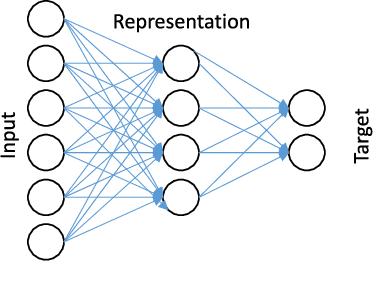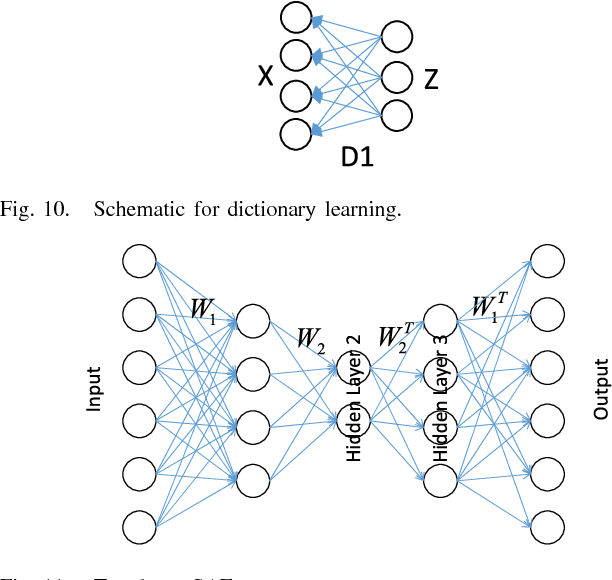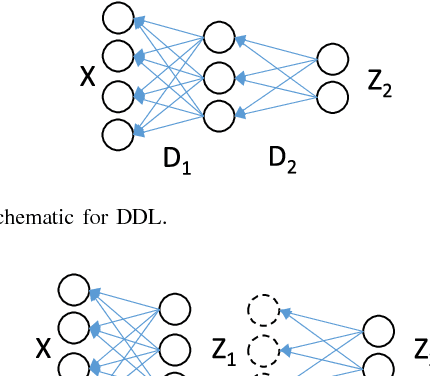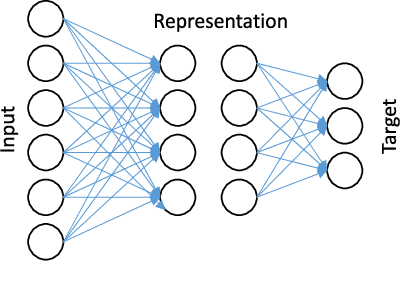Hemant K. Aggarwal
Discriminative Robust Deep Dictionary Learning for Hyperspectral Image Classification
Dec 11, 2019



Abstract:This work proposes a new framework for deep learning that has been particularly tailored for hyperspectral image classification. We learn multiple levels of dictionaries in a robust fashion. The last layer is discriminative that learns a linear classifier. The training proceeds greedily, at a time a single level of dictionary is learnt and the coefficients used to train the next level. The coefficients from the final level are used for classification. Robustness is incorporated by minimizing the absolute deviations instead of the more popular Euclidean norm. The inbuilt robustness helps combat mixed noise (Gaussian and sparse) present in hyperspectral images. Results show that our proposed techniques outperforms all other deep learning methods Deep Belief Network (DBN), Stacked Autoencoder (SAE) and Convolutional Neural Network (CNN). The experiments have been carried out on benchmark hyperspectral imaging datasets.
Label Consistent Transform Learning for Hyperspectral Image Classification
Dec 11, 2019


Abstract:This work proposes a new image analysis tool called Label Consistent Transform Learning (LCTL). Transform learning is a recent unsupervised representation learning approach; we add supervision by incorporating a label consistency constraint. The proposed technique is especially suited for hyper-spectral image classification problems owing to its ability to learn from fewer samples. We have compared our proposed method on state-of-the-art techniques like label consistent KSVD, Stacked Autoencoder, Deep Belief Network and Convolutional Neural Network. Our method yields considerably better results (more than 0.1 improvement in Kappa coefficient) than all the aforesaid techniques.
Model-based free-breathing cardiac MRI reconstruction using deep learned \& STORM priors: MoDL-STORM
Jul 10, 2018


Abstract:We introduce a model-based reconstruction framework with deep learned (DL) and smoothness regularization on manifolds (STORM) priors to recover free breathing and ungated (FBU) cardiac MRI from highly undersampled measurements. The DL priors enable us to exploit the local correlations, while the STORM prior enables us to make use of the extensive non-local similarities that are subject dependent. We introduce a novel model-based formulation that allows the seamless integration of deep learning methods with available prior information, which current deep learning algorithms are not capable of. The experimental results demonstrate the preliminary potential of this work in accelerating FBU cardiac MRI.
 Add to Chrome
Add to Chrome Add to Firefox
Add to Firefox Add to Edge
Add to Edge